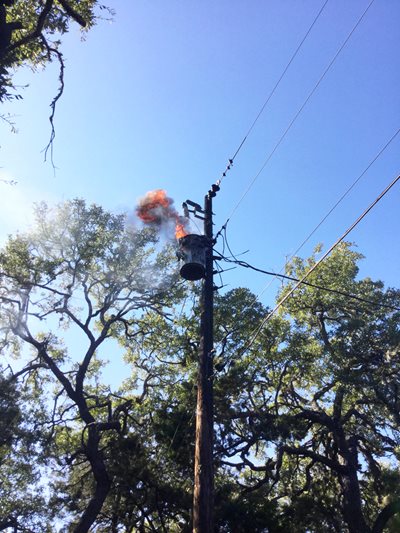What is a transformer?
A transformer is an electrical apparatus that manipulates the level of voltage flowing through any point in a power grid. In a distribution system, the transformer decreases the voltage traveling through power lines to a level more suitable for residential and commercial use.
What causes a transformer failure?
A transformer can fail for a variety of reasons, but the most common causes include lightning strikes, overloading, wear and corrosion, power surges and moisture. Regardless of the cause, the result can be remarkable. Transformers contain mineral oil keeping the transformer cool. When it becomes overcharged, the wiring can create heat and a spark. This massive overpressure may eventually cause the transformer to rupture with a loud boom, flash and possibly a fireball that can create a large plume of smoke that can be seen from a long distance.
What should you do when a transformer fails?
Failed transformers can create a variety of hazards, so it is very important that you do not approach it. Alert authorities by calling 911. BEC members should also report the outage and/or transformer failure by calling BEC at 866.226.3372. Please provide any additional information you think may be of value such as gate combinations or pole tag numbers to BEC dispatch. A distribution transformer can take one hour to a few hours to replace; but widespread damage can take much longer to repair.
Photo by Mike Satsky, BEC First Class Lineman
Posted: 2/14/2020 10:07:59 AM
Author: